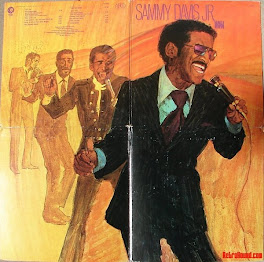Although titled 'T.S. Eliot', the video's reader is Michael Gough, a British actor whose imdb CV fails to show an appearance on one or some episodes of The Loretta Young Show in the 1950s where I remember Loretta featuring him as an honored player.
He's had a very durable career, and I do remember him in some of the horror films shown on his list and also in the more somber or sinister roles he's otherwise done.
Here he voices Eliot's 'Prufrock', a modern fool for love, a model of dull despair, of loneliness, a manipulee in the sophisticated hands of sexual puppetry, ripe for risible gossip, a man deadened to the prospect of anything but ironic response to his outreach.
When a trained British actor -- Gough, in this instance -- recites that which is -- though memorable on the page, in the mind's ear -- depressing, it is the high delivery that carries the poetry to us. Consonants crackle and pop and kick. Vowels open abysses and squeeze to a shriek. All that within a classical containment.
Americans. I'm one. We do not have this music. Our English can be welcoming or plain-spoken or hushed or rowdy or sincere; it can have brute poetry -- at its best, for example, in David Mamet. Southerners come close to the lyricism: Tennessee Williams, Capote, and (his greatness!) William Faulkner.
Americans. I'm one. We do not have this music. It's in our basic culture to despise aristocracy. Try as British working class heroes might, in their closer resentment, want to make His Lordship or Her Ladyship kiss their own Arses, these mates are still rooted more directly to Shakespeare, his modeling of great mankind, than they may be comfortable to admit.
His breath. Shakespeare's breath.






































As an American, you have a superb way of writing in a classical and poetic style, giving us portraits and insights with imaginative wording that I envy. I agree with your thoughts on writers Mamet, Williams, Capote and Faulkner. There is a book which I read some time ago entitled, Conversations With Capote. You might enjoy that one. Thank you for making us sound less like "ugly Americans."
ReplyDeleteI like Gough's reading a lot better than T S Eliot's. No doubt it takes an actor to render the feelings of the author with such humanity.
ReplyDeleteCher. It's good to hear from you, and good to be reinforced in my 'lit picks'! Thank you for your kind words -- you've always been good to me!
ReplyDeleteClaudia. I agree. Poets don't naturally read the way that best brings out their own work. They're often very keen on the 'iambics' or the 'assonance', but lose every iota of the drama inherent even in the lightest lyric. (Notice how Gough's pitch and conversational irony takes on the female stifling riposte to Prufrock -- 'That is not what I meant at all./That is not it, at all.'
Excellent.
ReplyDeleteIts the prose that matters.
If it hits the heart that's it.
Shall I compare thee to a summer's day?
Thou art more lovely and more temperate.
Rough winds do shake the darling buds of May,
And summer's lease hath all too short a date.
Sometime too hot the eye of heaven shines,
And often is his gold complexion dimmed;
And every fair from fair sometime declines,
By chance, or nature's changing course, untrimmed;
But thy eternal summer shall not fade,
Nor lose possession of that fair thou ow'st,
Nor shall death brag thou wand'rest in his shade,
When in eternal lines to Time thou grow'st.
So long as men can breathe, or eyes can see,
So long lives this, and this gives life to thee.
Ian. All the S'peare material has to be unraveled for me first to get the 'sense' of it, before it gets recompressed into his poetic lines.
ReplyDeleteHis sonnet you quote both praises his addressee and his own immortalizing power. And the rhetoric of his metaphors 'argues' that, once we string the lines out into a prose pattern
But S is so good with his sounds, we tend (for me, over dozens of readings and that many points over decades!) to voluptuate there, let mouth work ear.
Thanks for the comment, bro!
The Dude Abides.
ReplyDelete